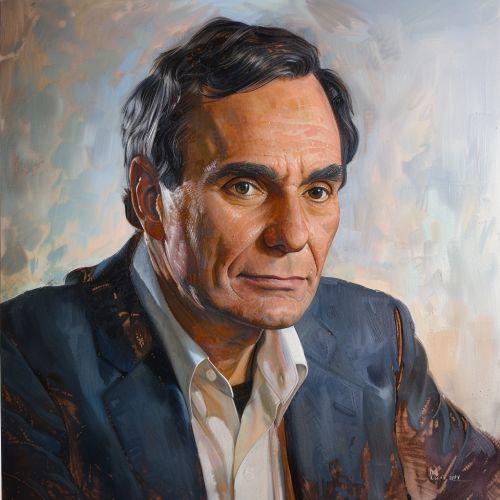Carl Sagan
Early Life
Carl Edward Sagan was born on November 9, 1934, in Brooklyn, New York. His father, Samuel Sagan, was an immigrant garment worker from Kamianets-Podilskyi, then in the Russian Empire, in today's Ukraine. His mother, Rachel Molly Gruber, was a housewife from New York. Sagan was raised in a reformed Jewish household, although by his own account, he was more interested in the stars than in his Hebrew studies.
Education
Sagan attended the University of Chicago, where he earned a Bachelor of Arts in self-proclaimed "nothing" in 1954, a Bachelor of Science in Physics in 1955, a Master of Science in Physics in 1956, and a Ph.D. in Astronomy and Astrophysics in 1960. His doctoral dissertation was titled "Physical Studies of Planets" and was supervised by Gerard Kuiper.
Career
Sagan's first academic position was at the University of California, Berkeley, as a fellow in astronomy from 1960 to 1962. He then moved to Harvard University as an assistant professor of astronomy. In 1968, Sagan was denied tenure at Harvard, a controversial decision at the time. He moved to Cornell University, where he became a full professor in 1971 and directed the Laboratory for Planetary Studies. He remained at Cornell until his death in 1996.
Sagan's work focused on the physical conditions and chemical composition of the planets, particularly the atmospheres of Venus and Jupiter. He also studied the possibility of life existing on other planets and was a strong advocate for the Search for Extraterrestrial Intelligence.
Sagan was also a prolific author, writing or co-writing more than 20 books. His most famous book, Cosmos, was also developed into a highly successful television series.
Personal Life
Sagan was married three times. His first wife was biologist Lynn Margulis, with whom he had two children, Dorion Sagan and Jeremy Sagan. His second wife was artist Linda Salzman, with whom he had a daughter, Sasha Sagan. His third wife was author Ann Druyan, with whom he had two children, Alexandra and Samuel Sagan.
Death and Legacy
Sagan died of pneumonia on December 20, 1996, at the age of 62. His death was a great loss to the scientific community, but his legacy lives on through his many contributions to science and his efforts to popularize science and make it accessible to the general public.


